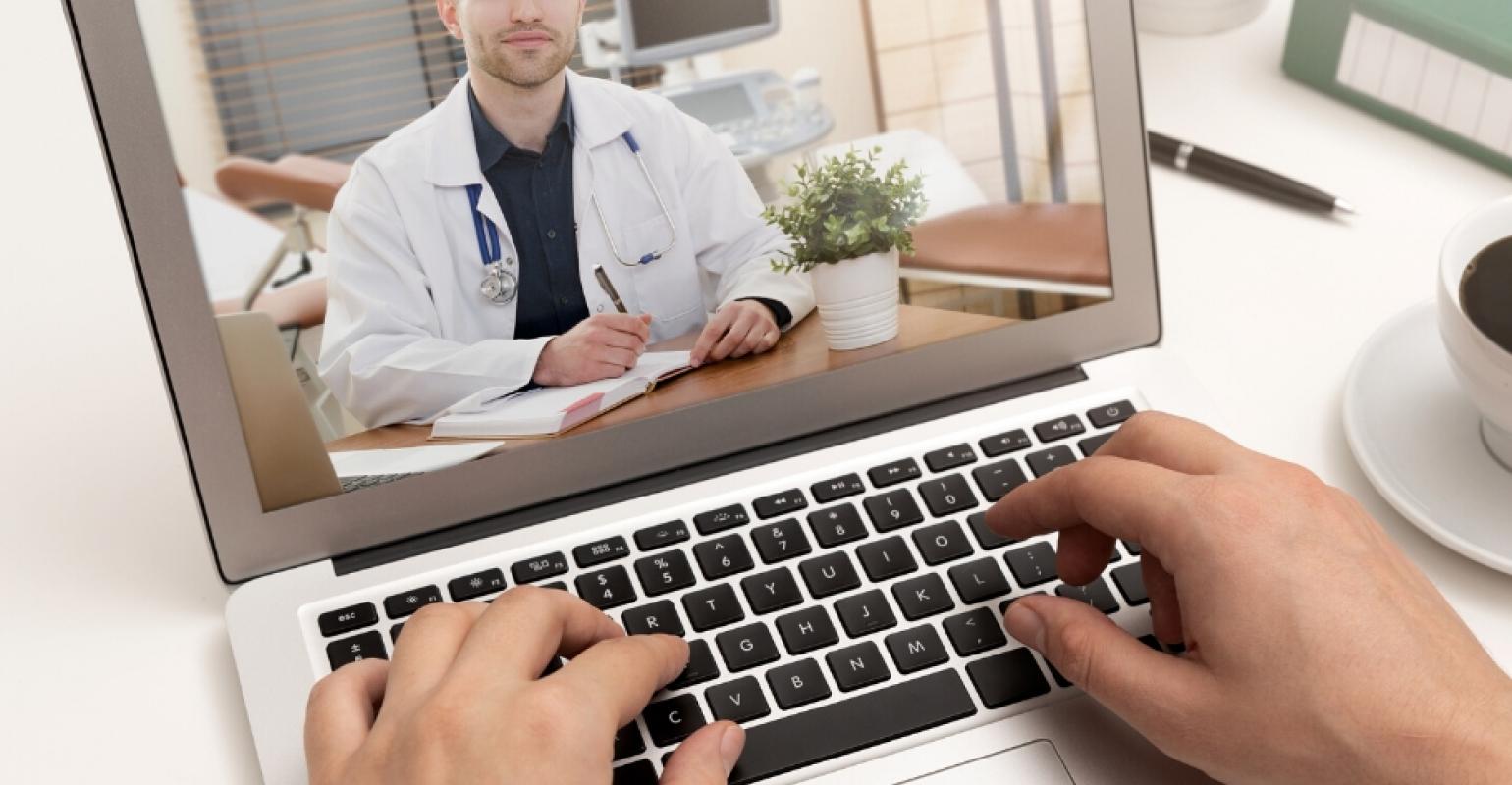New measure should provide legal certainty for the practice and democratize access to healthcare
Since November 24th, the practice of telemedicine in the Unified Health System (SUS) network in the city of São Paulo has been permanently authorized, with the publication of the law no. 17,718/2021, in the city's Official Gazette. The legislation that allows doctors to carry out remote and virtual consultations was approved by the City Council of the capital of São Paulo, on September 1, aiming to facilitate the monitoring and follow-up of patients.
The new measure originates from bill (PL) nº 45/2021, authored by councilor Sansão Pereira (Republicanos), aiming to make service in the public network more agile and avoid travel, especially during the Covid-19 pandemic.
According to the text, the municipality will ensure the secure transmission of audiovisual content and data through digital technologies. The patient or legal guardian may authorize or deny the online method of care, and the decision to carry out the consultation virtually will be at the doctor's discretion. The Executive Branch must also promote information campaigns to inform the population about the telemedicine modality in the municipal health network.
The legislation defines the practice of telemedicine in four activities: telemonitoring, teleguidance, teletriage and teleconsultation. Now, the Municipal Health Department must regulate the minimum procedures for prescribing medications within the scope of remote care, following the standards of the Federal Council of Medicine (CFM), the National Health Surveillance Agency (Anvisa) and the Ministry of Health.
For federal deputy Adriana Ventura (Novo-SP), author of the PL that gave rise to the law no. 13 989/20, which authorized the use of telemedicine on an emergency basis in any health activities, while the crisis caused by the new coronavirus lasts, and president of the Mixed Parliamentary Front for Telehealth, the São Paulo law is extremely positive.
“The more we multiply our efforts to definitively implement telehealth and telemedicine practices throughout the country, the better. São Paulo was a pioneer in this regard, responding to a real need of the population and health professionals. Laws like this serve as fuel for this agenda to advance in the National Congress,” says the deputy.
For Adriana, telemedicine has proven to be effective throughout the pandemic, allowing consultations and treatments to be interrupted, which would be detrimental to both patients and doctors. Thinking about a normal situation, the practice of remote care will be equally beneficial, in the deputy's view, helping to save time, avoiding unnecessary travel, and potentially reducing costs for both doctors and patients.
“Telemedicine can help reduce the inequality in the distribution of doctors across the country and democratize healthcare, which is currently very limited in hard-to-reach places. We live in a country of continental dimensions, with different social, economic and geographic realities, with an uneven population distribution and, naturally, gaps in professional coverage. I believe that through remote care we can begin to overcome these barriers,” emphasizes the deputy.
When asked about the impact of this new São Paulo law on the definitive regulation of telemedicine in the country, Adriana explained that providing a clear and objective overview of the matter provides the legal security necessary for the development of the entire digital health ecosystem.
“We are not just talking about teleconsultations, but also about the production of technology and innovation, services, infrastructure development, training and qualification of professionals”, points out the deputy, emphasizing that the measure will also have an impact on overcoming and reducing the excessive number of judicialization cases.
“Overcoming the costs and obstacles caused by legal disputes in this area is essential to achieving the goal of making the SUS sustainable and functional. It is a measure that will greatly facilitate investment in modernizing the system and implementing telemedicine. And most importantly: democratizing access to healthcare. I am talking about the possibility of carrying out and maintaining follow-up for patients with mobility difficulties, the possibility of integrating patient data, better allocation of time, personnel and resources, and overcoming excessive judicialization in the sustainability of the SUS as a whole,” he points out.
Reservations
But the president of the São Paulo Medical Association (APM), José Luiz Gomes do Amaral, has reservations about the new law in the city of SP.
He explains that the aforementioned law has gaps that need to be addressed in a broader discussion of the topic with the medical profession, which was missing in the drafting of the new rule.
“In its article 3, the amendment defines the practice of telemedicine in four modalities (telemonitoring, teleguidance, teletriage and teleconsultation). However, there is no reference to teleconsultation, a central activity in telemedicine. This is a serious gap in this piece of legislation”, points out Amaral, who also identifies other weak points in the São Paulo law, such as article 7, paragraph 1, which mentions the programmatic content of professional training in the area, which includes “Pillars for responsible Teleconsultation”, without, however, indicating what would be included in the subject/discipline thus named. There is also no specification of which professional would be involved in this activity.
“I understand that the aforementioned law could represent progress as long as the flaws highlighted above are corrected”, highlights the president of APM.
Still, in Amaral's opinion, the new municipal law of SP will certainly contribute to expanding the debate on the definitive practice of telemedicine and accelerating the implementation of this assistance instrument.
He says he understands that by adding teleconsultation to the new normal, he should leave it to the doctor to assess the case and assume the decision (and responsibility) of carrying out the consultation (whether the first one or any other) in person or remotely.
“I also believe that doctors should have a license to treat their patients in the national territory, the period of validity of their diplomas,” observes Amaral.
Project processing
Regarding Bills 1998/2020, which deals with telemedicine, and 2394/2020, which provides for telehealth, both from Adriana, they were in the Thematic Committees stage, in the Social Security and Family Committee of the Chamber of Deputies.
Recently, in a joint effort by the Telehealth Parliamentary Front, Digital Front and 28 other supporting entities, sufficient signatures were obtained to file an urgent request for PL 1998/2020, with the aim of accelerating this process and trying to take the project directly to the plenary.
On the 16th, the Chamber of Deputies approved the urgency to vote on Bill 1998/2020. The proposal is a victory for the collegiate and for the Joint Parliamentary Front for Telehealth, which have been fighting for the use of digital resources for healthcare, inclusion and citizenship of Brazilians.
“With all the work we are doing, listening to and collecting suggestions from all 14 Federal Health Councils, with the 28 associative entities specialized in the area, which represent more than 1,600 institutions, listening to professionals, managers, patients and SUS users, I am very optimistic about the prospect of approval of the project”, comments Adriana.
She states that the definitive regulation of telehealth practices will represent not only the legal framework, but the practical effect that will generate the growth of an economy and the development of an ecosystem that is already prominent in the Brazilian market.
“Patient health, defense of medical interests, technological innovation and the strengthening of the economy in harmony, moving together towards a future that is already a reality around the world”, observes the deputy.
Source: Global Summit Telemedicine & Digital Health – 12/17/2022
Text posted by APM (http://associacaopaulistamedicina.org.br/noticia/lei-que-autoriza-a-telemedicina-permanente-no-sus-em-sp-pode-servir-de-combustivel-para-que-pauta-avance-no-congresso?utm_campaign=informe_apm_ed_651__101010701_fin_105003&utm_medium=email&utm_source=RD+Station)





